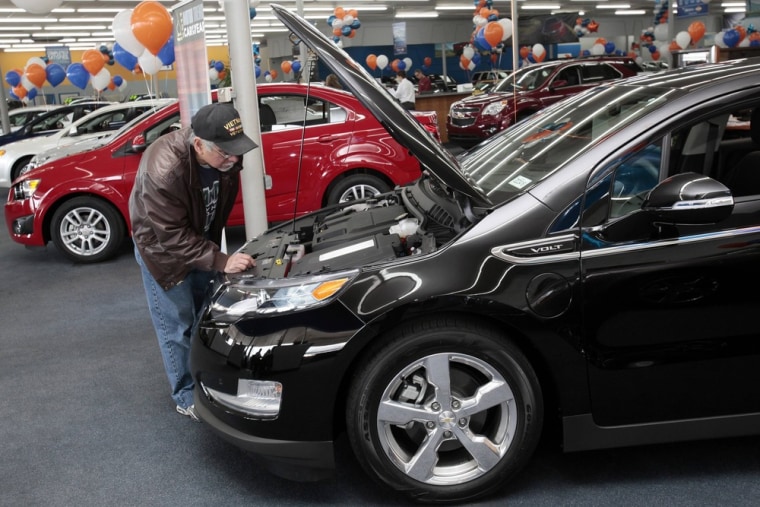While we’re not exactly sure when or where it happened, some green-minded U.S. motorist helped the nascent battery car market reach a critical milestone this past weekend, purchasing the 100,000th plug-in vehicle – or so claims the advocacy group Plug-In America.
“Our current estimate, based on monthly sales figures from automakers, is that the 100,000th highway-capable plug-in vehicle (was) sold on May 20," said Tom Saxton, Plug In America's chief science officer. "We are calling this the #PIA100K mark, and we are excited to see the continued growth of the market."
Read more at The Detroit Bureau: Speed Racer - Aston Martin's CC100 Concept
Proponents are hailing the news and noting that it’s been barely three years since the launch of the modern battery-car industry with the nearly simultaneous debuts of the Chevrolet Volt plug-in hybrid and the Nissan Leaf battery-electric vehicles.
Since then, similar products have hit the market, from the little Chevrolet Spark battery car to the new Porsche 918 plug-in supercar, which the German maker announced last week. In fact, most major automakers expect to have some form of plug-based vehicle for sale by next year, if only to meet California’s demanding new Zero-Emission Vehicle mandate.
Read more at The Detroit Bureau:Driverless Cars Draw Strong Public Interest
Despite the new offerings, sales have fallen short of expectations. The Obama Administration, for example, drove into D.C. promising to help put 1 million plug-based vehicles on the road by 2015. Few now believe that’s possible.
All forms of battery-based vehicles, from so-called “mild” hybrids to battery-electric vehicles, constitute a mere 3 percent of U.S. new vehicle sales. Leave out conventional hybrids – such as the best-selling Toyota Prius – and the figure flops to barely 0.5 percent.
There are positive signs. Tesla outpaced its own modest first-quarter expectations for the Model-S battery sedan, delivering the California maker its first-ever profit. Nissan has seen a surge in Leaf sales since shifting production to the U.S. and cutting prices earlier this year.
The high cost of battery technology is generally viewed as a major obstacle for products like the Volt. There’s also the question of limited range. Tesla is offering nearly 300 miles per charge with its optional battery pack for the Model S. It has begun setting up a network of so-called Superchargers.
In fact, a new study predicts the number of places to plug in will increase 100-fold, to more than 13 million plug-in spots worldwide, which could ease what is being called “range anxiety.”
For now, don’t expect a surge. After all, Toyota sells more Camry sedans in three months than all the plug-ins currently on U.S. roads.
